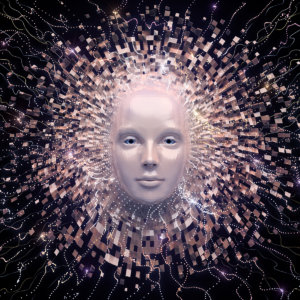The Jobs That Artificial Intelligence Will Create
A global study finds several new categories of human jobs emerging, requiring skills and training that will take many companies by surprise.
Topics
Frontiers
The threat that automation will eliminate a broad swath of jobs across the world economy is now well established. As artificial intelligence (AI) systems become ever more sophisticated, another wave of job displacement will almost certainly occur.
It can be a distressing picture.
But here’s what we’ve been overlooking: Many new jobs will also be created — jobs that look nothing like those that exist today.
In Accenture PLC’s global study of more than 1,000 large companies already using or testing AI and machine-learning systems, we identified the emergence of entire categories of new, uniquely human jobs. These roles are not replacing old ones. They are novel, requiring skills and training that have no precedents. (Accenture’s study, “How Companies Are Reimagining Business Processes With IT,” will be published this summer.)
More specifically, our research reveals three new categories of AI-driven business and technology jobs. We label them trainers, explainers, and sustainers. Humans in these roles will complement the tasks performed by cognitive technology, ensuring that the work of machines is both effective and responsible — that it is fair, transparent, and auditable.
Trainers
This first category of new jobs will need human workers to teach AI systems how they should perform — and it is emerging rapidly. At one end of the spectrum, trainers help natural-language processors and language translators make fewer errors. At the other end, they teach AI algorithms how to mimic human behaviors.
Customer service chatbots, for example, need to be trained to detect the complexities and subtleties of human communication. Yahoo Inc. is trying to teach its language processing system that people do not always literally mean what they say. Thus far, Yahoo engineers have developed an algorithm that can detect sarcasm on social media and websites with an accuracy of at least 80%.
Consider, then, the job of “empathy trainer” — individuals who will teach AI systems to show compassion. The New York-based startup Kemoko Inc., d/b/a Koko, which sprung from the MIT Media Lab, has developed a machine-learning system that can help digital assistants such as Apple’s Siri and Amazon’s Alexa address people’s questions with sympathy and depth.


Comments (13)
Donato Toppeta
anshul sharma
Sivakumar Balasubramanian
Joseph Psotka
Abhijit Bhattacharya
Randy Crawford
Munyaradzi Mushato
Munyaradzi Mushato
ANA MERCEDES GAUNA
Kenneth Martin
Aik Koon Wee
Tinko Stoyanov
Michael Zeldich